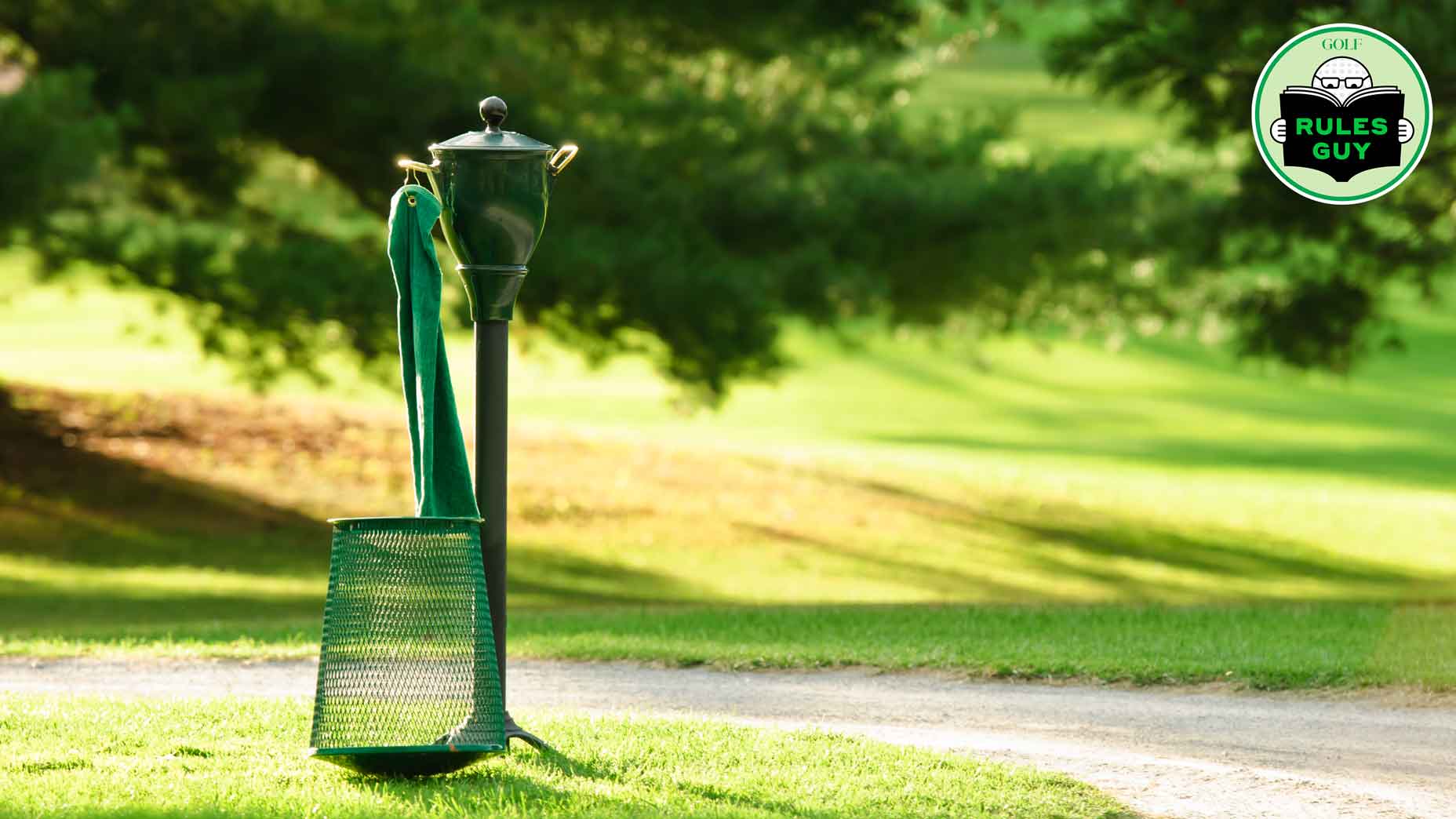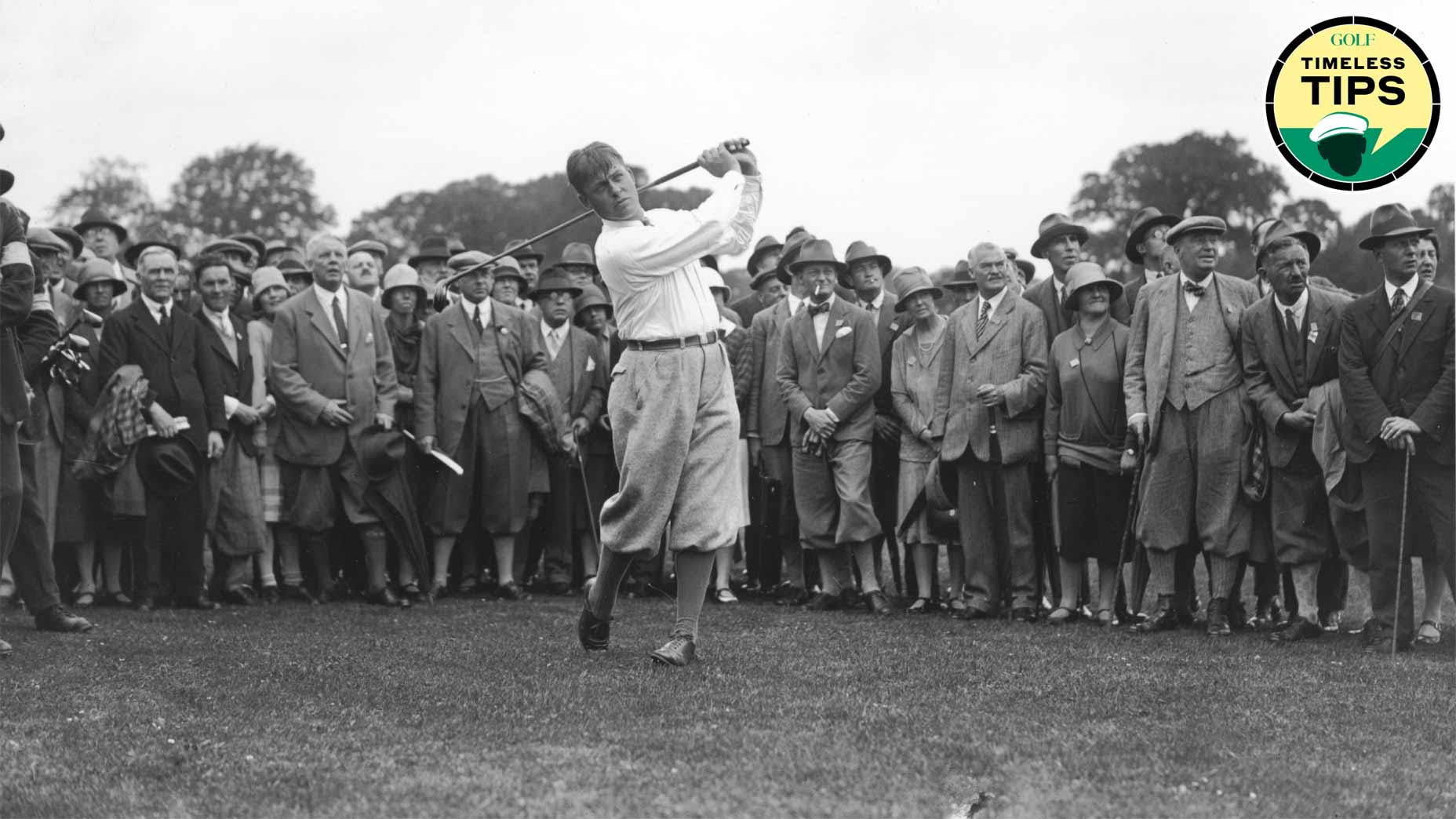 3 easy drills to hit crisp and powerful iron shots
3 easy drills to hit crisp and powerful iron shots
The Etiquetteist: 7 ways to deal with cheating playing partners

Ah, golf, the great game of honor. Except when it isn’t. The game’s history is thick with questionable conduct.
And cheating allegations against an eclectic array of figures, from the late, great golf bamboozler Puggy Pearson to Gary Player, Donald Trump and, most recently, Patrick Reed.
Those are just the ones that make the morning papers. On any given day, on any given course, someone stands in violation of the game’s sacred code.
So, what’s the proper way to deal with an apparent scofflaw? As an avid golfer and author of Commander in Cheat: How Golf Explains Trump, Rick Reilly has given ample thought to the matter.
Here are his 7 rules for handling rule-breakers.
EXTEND THE BENEFIT OF THE DOUBT
In reporting his Trump book, Reilly learned from the National Golf Foundation that nearly 90 percent of golfers claim to play by the rules. So how to explain that so many of those golfers also sweep away two-footers and take extra tee shots without adding strokes?
“A lot of people cheat without knowing they’re cheating,” Reilly says. His solution: use their trespasses as teachable moments. “You say to a guy, ‘You know, you’re not allowed do to that thing you’re doing,” Reilly says. In most cases, true innocents will thank you for the input and correct their behavior. If their conduct persists? “You don’t pay them a cent,” Reilly says. “And you don’t play with them again.”
GET A FASTER CART
Of Puggy Pearson, a high stakes gambler and brazen golf cheat, opponents used to say: “The only way to beat him is to get to his ball before he does.” That’s tough to do with a guy like President Trump, who, Reilly says, loosens the governor on his cart and whips around the course so quickly that even his secret service agents can’t keep up. The good news is most golf cheats aren’t Nascar drivers. If you suspect your partner is inclined to pull a fast one, put the pedal to the metal and spring in your step, and be the first one to their ball.
CALCULATE THE COSTS
Because golf is both a pastime and a social pursuit, cheating accusations can have implications that reverberate beyond the course. The same golfer you just confronted on the fairway might be the guy you are slated to have dinner with that night, maybe with the spouses and the kids. Before making a stink, Reilly recommends an actuarial accounting.
“I like to think to myself, Who is the loser?” he says. “Who is really getting screwed by the cheating?” If the match he’s playing is a low-stakes, one-on-one affair, Reilly might decide just to let things slide. “If it’s medal play, different story, I’ve got to protect the field,” he says. “But if I’m the only one getting hurt by it, I can probably live with it.”
Then again, he notes: “If we’re playing for $100, I’m going to say something.”
LOWER THE STAKES
Reilly recently started playing in a regular group that he refers to as the “Costco Club” because the wagering is bargain basement: a dollar on the front nine, a dollar on the back nine and a dollar on the 18-hole total. “I asked one of the guys, ‘Why are you so cheap?’” Reilly says. Turns out they used to play for hefty sums, until a fight broke out over cheating allegations and one of the players wound up quitting the club. Bent on preventing that from happening again, the crew took to playing low-stakes competitions. “When you’re playing for a dollar,” Reilly says, “no one gets mad.”
ADVERTISEMENT
GIVE THE GIFT OF GUIDANCE
Rules kerfuffles don’t always have to lead to hostile confrontations. Reilly cites the case of a well-liked rogue at a private club whose buddies had finally had enough. Rather than dress him down in public, one of the man’s friends left a gift-wrapped Rules of Golf book in his locker, an anonymous gesture that could have come from almost anyone in the club. “It was their friendly, funny way of saying, ‘Hey, man, we all know what you’ve been up to,’” All tied up in a pretty bow.
CREATE YOUR OWN GOVERNING BODY
Reilly’s brother, John, belongs to a group of golfers who call themselves “the Goons,” a gregarious gaggle with varying relationships to the rules. One story tells of a Goon who hit a white ball into the deep rough but an orange one out, and then declared: “Guess I hit it so hard it changed color.”
In short, violations are legion. As a simple redress, the Goons have created their own handicap system, separate from any computerized tally and more reflective of reality. “One of the guys always has a notebook and when they catch someone cheating, they write it down,” Rick says. “Next time out, your handicap is adjusted accordingly.” Goons will be goons, but they’re still (somewhat) accountable to the law.
DON’T RELY ON THE KINDNESS OF STRANGERS
At some point in your golf life, it’s bound to come about: You’ll wind up in a match with someone you’ve just met and discover that their best club is a foot wedge. It happened to Reilly this past summer in Montana. His rule is something like three strikes and you’re out. “I told the guy, you know, can’t stamp the grass down behind your ball like that, and if you keep doing that, I’m not playing a match with you,” Reilly says.
By the time they made the turn, the scofflaw was still at it, so Reilly told him to buzz off and waved him ahead. “Why not?” Reilly says. “A guy like that, I’m never going to see him again.” Life’s too short not to be frank. Or to put up with foul play.
ADVERTISEMENT







